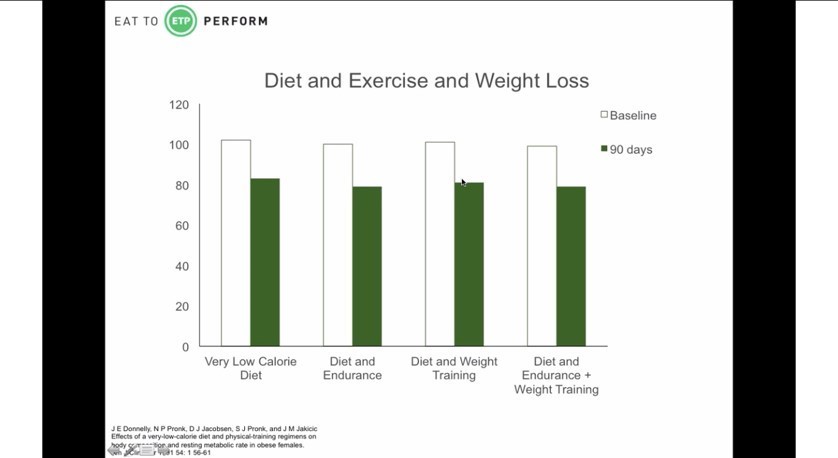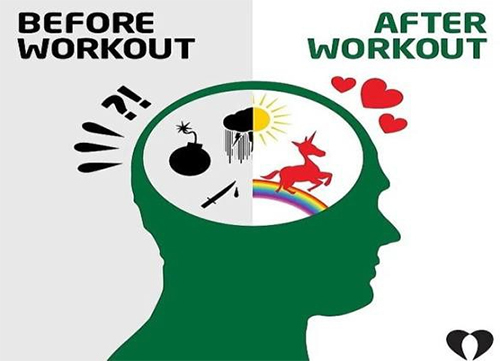
Recently it has come to light that in trained individuals who exercise 3-4 days per week that they do not see a lot of significant fat loss from the activity. Although this statement as merit in the scientific community it is important to look at cardiovascular activity from a holistic viewpoint beyond just simply a fat loss tool. Let’s examine the to 3 benefits of Cardiovascular exercise.
First, why not for fat loss?
Numerous studies on has shown that cardiovascular exercise does not offer the expected benefit when compared to caloric restriction. Further other studies have showed that “weight loss itself provides the major cardio protective effect of CREX (calorie restriction and exercise) and that the benefits do not depend on which approach to weight loss is used”. In everyday terms weight loss offers the same benefit to heart health as exercise do and exercise alone is a fairly ineffective way to lose weight, especially in trained subjects. Well, I guess we can all start saving time and get rid of the cardio, right?! Not quite! Let’s look at this holistically.

Improved Cardiovascular Efficiency
When the heart is stressed (through cardiovascular training) there are several positive adaptations that your body goes through. We will look at the top two.
1. Lowered resting heart rate. The heart is your strongest muscle and never rests, ever. It works 24/7 to circulate blood throughout our bodies. The more efficient the heart is the easier its job becomes. This is why losing weight in itself is good for the heart, the heart does not have to work as hard to circulate our blood when we move up steps, walk around, or get up and down out of our seats.
2. Increased Stroke Volume: Stoke volume or SV is the volume of blood pumped from one ventricle of the heart with each beat. A high stroke volume results in a low resting heart rate. Think of it like this. When your heart is strong it does not have to beat as much because it can circulate MORE blood per beat.Kind of like when our muscles are strong its less trips to the car unloading groceries.
Increasing cardiovascular efficiency greatly increases life expectancy and quality of life mainly by relieving stress on the heart. (since the heart if more efficient it does not have to work or beat as often).
A person with an average heart rate of 75 BPM will result in 39,420,000 beats per year as opposed to 31,536,000 beats per year if your resting heart rate is 60. That’s 7,884,000 more beats per year! That is A LOT more work put on the heart! One study we looked at stated “Inactivity or a sedentary lifestyle is associated with increased cardiovascular events and premature death”
Improved Insulin Sensitivity
Insulin is a fantastic hormone that we simply cannot live without. Its function is to transport glucose to various cells of the body for storage or energy production. Without this transport mechanism we die.
The issue, as with most hormones, comes into play when we have an overabundance of this hormone. When we consistently eat more calories than we need our bodies produce more insulin and over time our cells become “resistant”to insulin. This means that when insulin comes “knocking”they ignore the knock. The bodies response to this is to send more insulin to keep up with production. Finally,the cells respond from the increased amount of insulin but then the next time even MORE insulin is needed for nutrient storage. Caloric restriction helps stop this cascade of too much insulin however the cells are still insulin resistant. In comes exercise. A study done on high intensity interval training (HIIT) have shown an improvement in insulin sensitivity. This improvement along with caloric restriction can have an amazing impact, especially on pre diabetics or those suffering from metabolic syndrome.Various forms of cardiovascular exercise tend to mobilize and stress large amounts of muscle which depletes glycogen from those areas making them more insulin sensitive (which is good) and can prevent muscle loss and even promote new muscle growth if the stress on the muscle is intense.

Motivation-Mood-Depression & the Brain
Lack of activity is one of the top areas of research when it comes to brain related disease such as Alzheimer’sand dementia and is being linked to depression, anxiety and mood. If you have ever gone on a brisk morning walk then you have felt the affects. The neurotransmitter dopamine or “movement” hormone gives us a sense of well being and happiness. Movement, or cardiovascular exercise remains one of the best ways to get our long term dopamine fix. The best part is this dopamine rush encourages us to move even more! We may decide to work a little later from the increased energy, go on an evening walk, play with the kids, watch less tv, and just plain MOVE! This can have an incredible impact on our caloric expenditure over time. Think to yourself, have you ever felt “bad” 10 minutes after a workout? One of the studies we looked at stated
“Health benefits from regular exercise that should be emphasized and reinforced by every mental health professional to their patients include the following:
- Improved sleep
- Increased interest in sex
- Stress relief
- Improvement in mood
- Reduced tiredness that can increase mental alertness
Mental health service providers can thus provide effective, evidence-based physical activity interventions for individuals suffering from serious mental illness.

The hormonal benefits to improved sleep along from increasing our cardiovascular training in pure gold in itself and entire article on that alone is merited! So now you have the entire story and solid reasons to do some cardio! For the BEST forms of cardio for fat loss and everything we talked about here email us at coaching@macromissionary.com.
